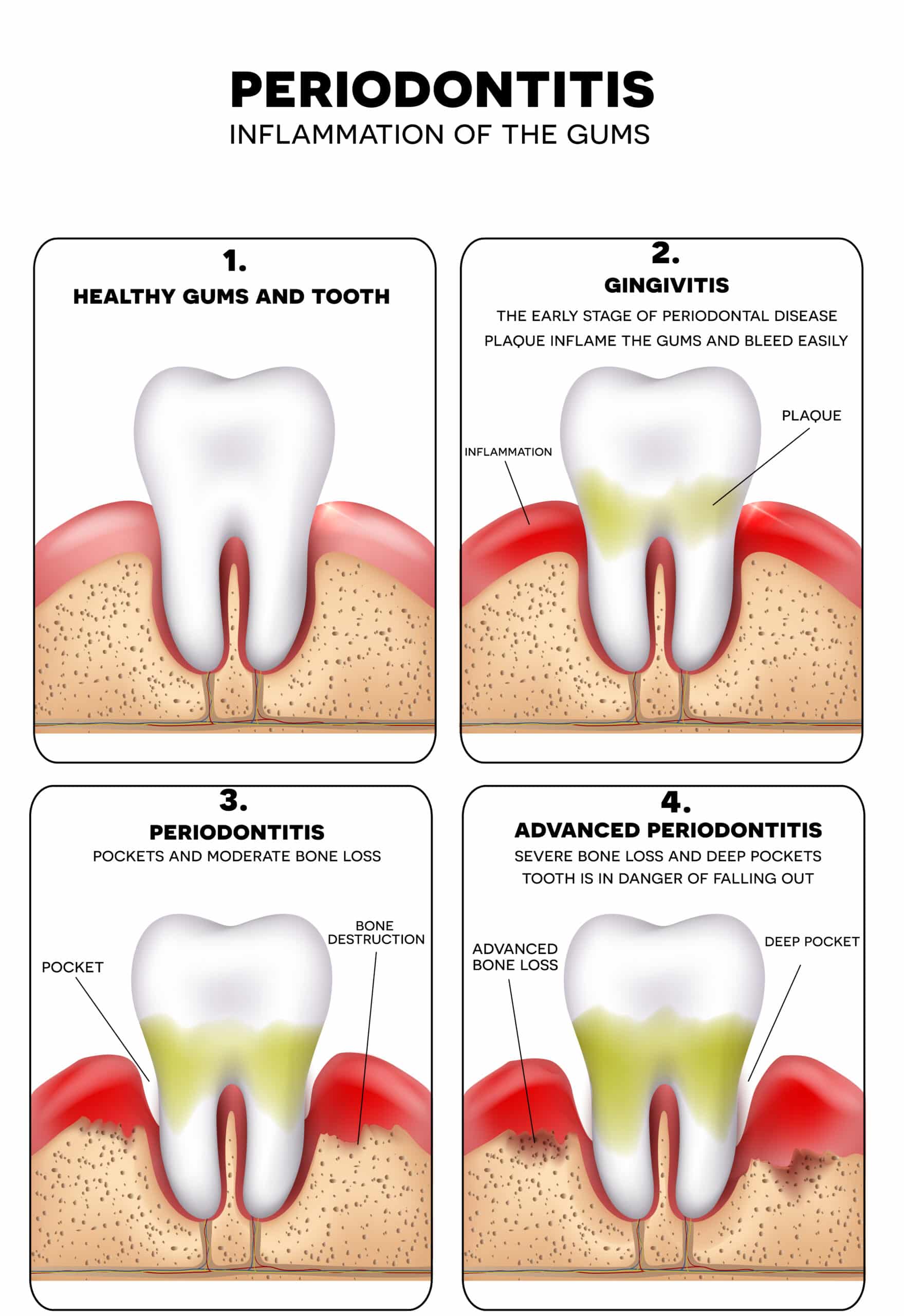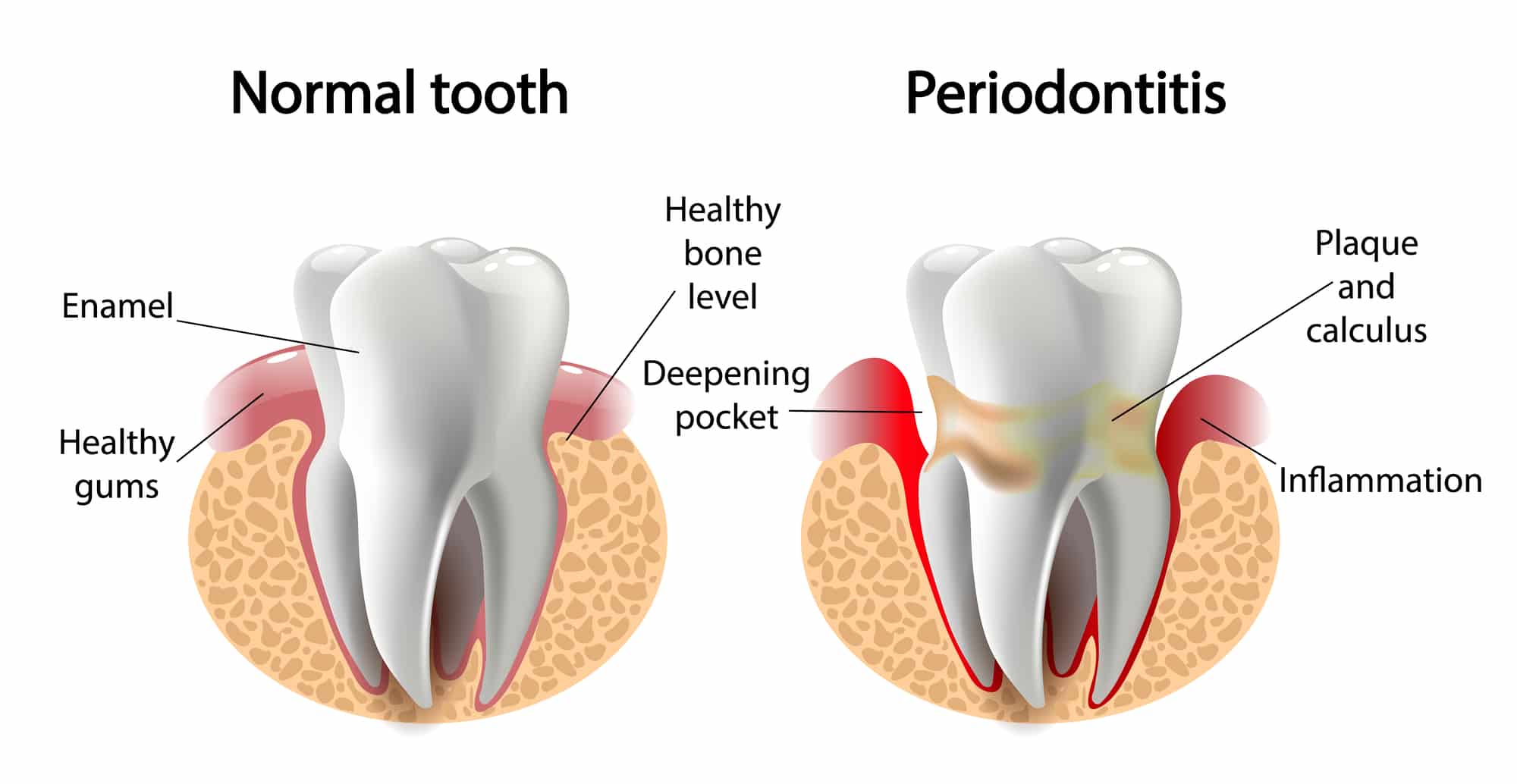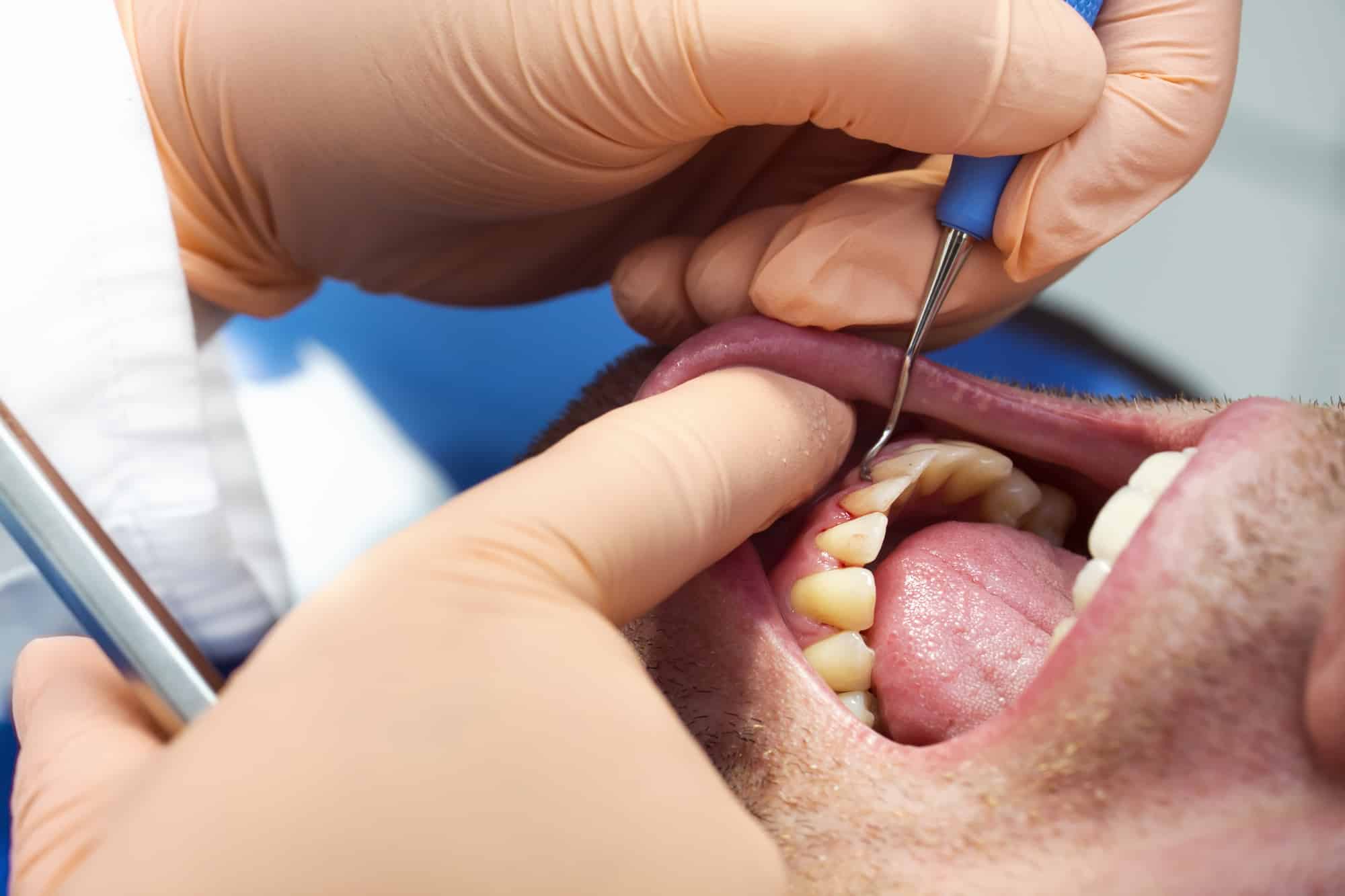Los problemas periodontales y la falta de dientes están, en la mayoría de ocasiones, muy ligados entre sí.
Y es que una periodontitis que no se trata a tiempo y avanza demasiado, compromete la estabilidad de las piezas dentales.
Es por ello que son muchas las personas que quieren colocarse implantes, pero dudan de si es posible por padecer una enfermedad periodontal.
Por eso, con este artículo queremos resolver todas las dudas que tengas sobre este tema y explicarte cómo recuperar tus dientes a pesar de la periodontitis.
Problems prior to dental implant placement
As with any dental treatment, before starting an intervention or, in this case, the placement of implants, it is essential to have good oral health.
That is to say, the dentist will have to carry out different diagnostic tests to determine that the patient does not have any problems, such as caries.
But when we talk about implantology, the oral cavity of the person must meet certain requirements prior to the placement of the screw.
Placement of a dental implant
Enlarge image
PLACEMENT OF A SLEEVE
We are talking about having a sufficient amount of bone and not suffering from periodontal disease.
Regarding the first question, the implantologist must assess that the bone mass is adequate, because only then will the screw be adequately anchored.
If this is not the case, it will be necessary for the person to undergo a bone grafting operation before the implant can be inserted.
Regarding the compatibility of periodontitis and implants, we discuss below.
What if I have periodontitis but need implants?
Before going into details, we can state that periodontal patients can indeed have dental implants.
Therefore, even if gum problems are present, it is possible to insert one or more implants, depending on how many are required, to restore functionality and esthetics to the smile.
However, it is essential that a periodontist – the dentist who is an expert in gum health – first treats periodontal disease.
To do so, and depending on the severity of the tissue, it will be necessary to opt for a basic periodontal treatment or for an access surgery.
Both interventions are indicated to completely cure periodontitis; however, the latter is carried out when the more basic process is insufficient.
In any case, with these treatments it is possible to access the subgingival area – under the gum – to clean the part affected by solidified calculus.
Once the periodontist is sure that the patient has healthy gums, it is essential that hygiene at home and check-ups are carried out to avoid recurrence.
The risk of suffering complications during treatment with dental implants increases in people who have suffered from periodontal problems.
It is possible to place implants if you have had periodontitis, but it is essential to treat the disease beforehand.
I already have my implants, but how can periodontitis affect me?
Once the patient has osseointegrated dental implants, that is to say, correctly attached to the dental bone, hygiene is still a crucial factor.
Remember that the origin of gingivitis is in poor oral hygiene, so bacteria and food debris begin to accumulate on the tooth surface.
With the passage of time, these pathogens are deposited in the gum line, solidifying to form accumulations of calculus that end up accessing the inside of the oral mucosa, resulting in periodontitis.
Just as periodontal disease affects the periapical part of the tooth, these bacteria also damage the implant, as it functions in exactly the same way as the natural root.
The difference is that, instead of being called periodontal, when the patient has dental implants they are known as peri-implant diseases.
Prevention is better
It is preferable not to have to treat a disease such as periodontitis, but to take care of your mouth to prevent it from occurring.
What are peri-implant diseases?
As we have just explained, peri-implant diseases affect the dental implant and, if not treated in time, can lead to treatment failure.
Implant surgery involves an investment of money and time, so it is important to maintain good habits to ensure its long-term durability.
Keep in mind that, with proper maintenance and hygiene, an implant can last a lifetime.
Therefore, the best thing to do is to avoid the appearance of peri-implant diseases that may endanger the functionality and esthetics of our teeth.
Within these pathologies, we distinguish two types depending on how advanced they are:
Mucositis
Peri-implant mucositis is the equivalent of gingivitis, so it is also reversible with proper treatment.
Due to this condition, the gingival tissues become inflamed and reddened.
In addition, pus discharge may occur in some cases.
Peri-implantitis
As with periodontitis, if mucositis is not addressed effectively and in a timely manner, it eventually leads to peri-implantitis.
In this state, the inflammation of the mucosa continues but also includes the loss of the bone mass that supports the implant.
Peri-implant diseases
Enlarge image
PERI-IMPLANTITIS
Treatment and prevention measures
To cure peri-implant disease and prevent the implant from falling out, the dental implantologist will carry out a study of the damaged area to assess the advance of bacteria.
Depending on whether it is mucositis or peri-implantitis, a more or less thorough cleaning treatment will have to be carried out, as required by the patient.
In any case, for its resolution, the dentist will have to remove the bacterial plaque and, if necessary, restore the lost bone structure.
Regarding the prevention of peri-implant diseases, oral cleaning is the basis.
WE TREAT YOUR PERIODONTITIS
The risk factors for developing these peri-implant diseases are mainly poor hygiene and having previously suffered from periodontal problems.
Therefore, it is essential to clean the implants properly and not only using a toothbrush.
In addition, the use of an oral irrigator and interproximal brushes is very beneficial.
Both utensils are designed to sanitize areas that are difficult to access for both the toothbrush and dental floss.
They are, therefore, the best complement to maintain a bacteria-free mouth.
Remember that hygiene routines at home are insufficient, so it is important to have a professional dental prophylaxis at the dentist.
Especially in patients who have suffered from periodontitis before, this type of consultation is very important to avoid recurrence.
Normally, the specialist schedules these dental hygienies every 4 to 6 months.
Finally, remember that it is vital to respect the revisions with the dental implantologist, even if apparently you do not have any complications.
Only in this way will it be possible to detect any problem in time and solve it as soon as possible.




